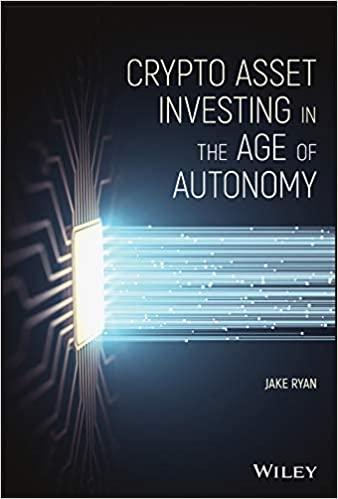Question
BOT (Build-Operate-Transfer) is an arrangement, according to which the private sector builds the infrastructure with their money, then operates it over a period, often as
BOT (Build-Operate-Transfer) is an arrangement, according to which the private sector builds the infrastructure with their money, then operates it over a period, often as long as 20-50 years (this period is referred to as the concession period). The infrastructure will be transferred to the government at the end of the concession period. The government can promote a BOT project using different types of incentives, which include: (i) lengthening the concession period; (ii) subsidizing a portion of investment costs; and (iii) allowing corporate income tax exemption or reduction.
Now suppose that you are advising the government to attract investors to a BOT project for building a major highway. The project is expected to cost $200 million in year 0 and generates a stream of earnings before taxes of $25 million per year, starting from year 1 onwards. The standard rate of corporate income tax is 20%.
a) Suppose that the government considers the plan, in which the concession period is 50 years and no government subsidies and tax incentives are provided. What is the IRR of the project? (15 marks)
b) Given the risk associated with the project and the investment location, the investor requires a minimum rate of return on investment of 9%. Without government subsidies and tax incentives, what should be the minimum length of the concession period that makes the investor interested in the project? (The government should be well aware of this before its negotiations with prospect investors.) (15 marks)
Hint: The minimum length of the concession period is the number of years required for the investor to exactly earn his minimum rate of return.
Suppose that you have worked with the government to design the following three possible financial arrangements for the BOT project for potential investors.
c) Which of the following schemes is most attractive to the investor (whose main interest is the rate of return on investment)? Why? (10 marks)
| Scheme | Length of concession period | Subsidy in year 0 | Corporate Income Tax Rate |
| 1 | 20 years | $15 million | 20% |
| 2 | 30 years | $0 million | 15% |
| 3 | 40 years | $0 million | 20% |
Step by Step Solution
There are 3 Steps involved in it
Step: 1

Get Instant Access to Expert-Tailored Solutions
See step-by-step solutions with expert insights and AI powered tools for academic success
Step: 2

Step: 3

Ace Your Homework with AI
Get the answers you need in no time with our AI-driven, step-by-step assistance
Get Started


